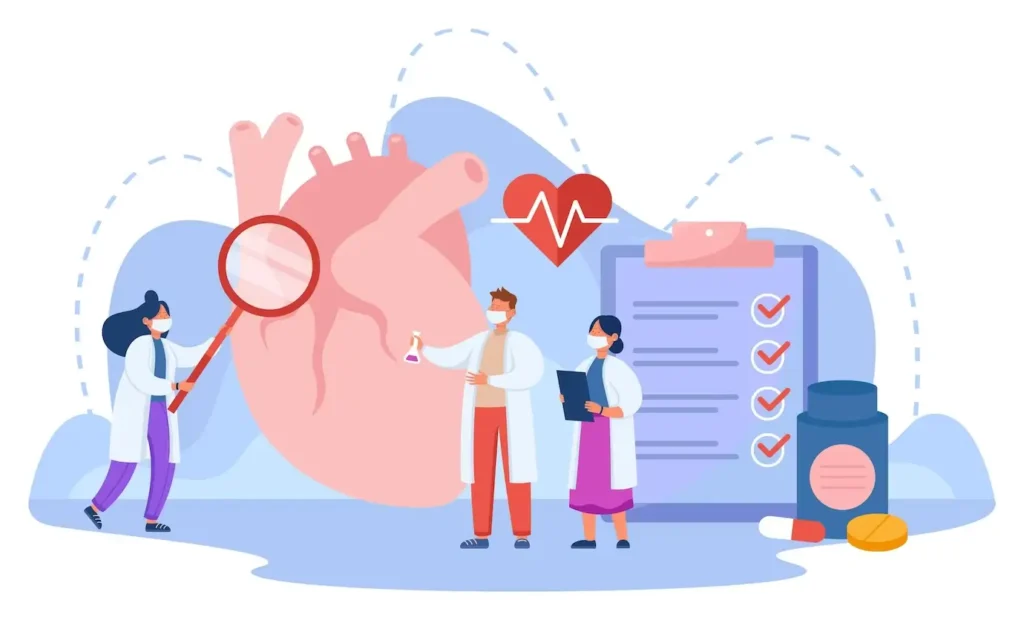How to Lower Your Risk of Heart Disease: 6 Helpful Tips

Heart disease is the leading cause of death in the United States, Norway, and the world.
Heart disease is the name given to conditions such as coronary heart disease, coronary artery disease, and congenital heart disease. These conditions can affect the arteries of your heart and cause irreversible damage, and may lead to a heart attack. High blood pressure, abnormal cholesterol levels, smoking, and obesity may increase your risk of heart disease.
Are you at risk of getting heart disease? If so, these 6 helpful tips can help lower your risk. Eating healthy, staying active, and not smoking are all good steps to take to lower your risk of heart disease.
1. Exercise Regularly
Exercising regularly is one of the best ways to lower your risk of developing heart disease. Exercise is an important factor in keeping your heart healthy, as it helps to keep your blood pressure, cholesterol, and other cardiovascular risk factors in check. Aiming for at least 30 minutes of moderate to vigorous physical activity a day is a great way to keep your heart healthy and reduce your risk of heart disease.
Physical activity doesn’t have to be high-intensity or lengthy. Even just a 30-minute walk each day can have a positive impact on your heart. Other forms of exercise, such as jogging, swimming, and cycling, can also help you reduce your risk of cardiovascular disease. Resistance training, or weight training, is also beneficial for maintaining solid cardiovascular health.
Regular exercise also helps to reduce stress and anxiety levels. High stress and anxiety levels can lead to increased blood pressure, which can increase the risk of developing heart disease. Exercise helps to reduce these levels, which can help to reduce the risk of heart disease.
2. Eat Healthy
Eating healthy is essential for keeping your heart in top condition and reducing your risk of heart disease. Fruits, vegetables, and lean proteins are all important parts of a healthy diet. Eating healthier fats such as olive oil, avocados, and nuts can also be beneficial.
Heart disease is a growing problem in the United States. According to the Centers for Disease Control and Prevention, heart disease is the leading cause of death in the U.S. It affects millions of people each year, with many of them not even knowing they are at risk.
Making small changes to your diet can greatly impact your heart health. A diet full of fresh fruits and vegetables, lean proteins, and healthy fats can help lower your risk of heart disease. Avoiding foods high in saturated fats, trans fats, and added sugars can also help reduce your risk.
Fruits and vegetables contain essential vitamins and minerals that help your body function properly and fight disease. They also contain fiber which helps to keep your cholesterol levels in check. Eating various brightly colored fresh fruits and vegetables is a great way to get the nutrients you need.
Lean proteins such as fish, poultry, beans, and nuts are also important for a healthy diet. They provide essential amino acids that your body needs to build muscle and maintain healthy tissues.
Healthy fats are an important part of any healthy diet, and can help reduce your risk of heart disease. Good sources of healthy fats include olive oil, avocados, and nuts. Eating these foods can help reduce inflammation, a major risk factor for heart disease.

3. Don’t Smoke
Smoking is a leading cause of heart disease, and it’s no surprise why. Cigarette chemicals damage your arteries, increasing your heart attack and stroke risk. If you smoke, you’re much more likely to develop heart disease than someone who doesn’t.
Even if you’ve been smoking for years, it’s never too late to lower your risk of heart disease by quitting. Studies have shown that quitting can help reduce your risk of heart attack and stroke even if you’ve smoked for years. It’s never too late to make a positive change in your life.
You don’t have to do it alone when you decide to quit. Your doctor can help you develop a plan to quit smoking. Your doctor can also prescribe medication to help you quit and provide counseling to help you stay on track.
Talk to your doctor if you’re ready to take the first step and quit smoking. They can help you better understand the risks of smoking, how to quit, and how to stay on track. Together, you can be on your way to a healthier heart.
4. Manage Stress
Are you feeling stressed out? You’re not alone! Stress has become a fact of life in today’s world, with many of us struggling to juggle work, family, and social obligations. Unfortunately, this type of stress can have a negative impact on your heart health. To keep your heart healthy, finding ways to manage your stress and lower your risk of heart disease is important.
The good news is that many relaxation techniques are available to help you cope with stress. Yoga and meditation are two of the most popular, with both providing numerous physical and mental benefits. Yoga helps to reduce stress levels by calming your mind, while meditation helps to clear your mind and focus on the present moment. Both activities can help reduce your risk of heart disease by reducing your stress levels.
Managing stress and lowering your risk of heart disease doesn’t have to be hard. By incorporating yoga and meditation, getting enough sleep, exercising regularly, and eating a balanced diet, you can help to reduce your risk of heart disease and enjoy better overall health.
5. Get Regular Check-Ups
One of the most important preventive measures is to get regular check-ups. By getting regular check-ups, you can detect any underlying health issues that can lead to heart disease. It is also essential to consult a hjertespesialist (it means heart specialist) if you have any of the risk factors for heart disease.
Regular check-ups allow your doctor to assess your health and risk factors to develop a plan to help you reduce your risk of heart disease. These check-ups may include physical exams, blood tests, and other screenings to detect potential heart problems. Your doctor may also recommend certain lifestyle changes to help lower your heart disease risk.
When you visit your doctor for a regular check-up, it’s important to provide them with as much information about your lifestyle and risk factors for heart disease as possible. This includes your family history, diet, exercise habits, and any medications you may be taking. Your doctor may be able to recommend specific lifestyle changes or treatments that could lower your risk of heart disease.
It’s also important to remember that regular check-ups are just one part of managing your heart health. Eating a healthy diet, staying physically active, and avoiding smoking and other unhealthy habits are all essential for helping to reduce your risk of heart disease.
6. Limit Alcohol Consumption
As more and more people are looking for ways to lead healthier lives, the importance of limiting alcohol consumption is becoming increasingly apparent. Excessive drinking can significantly increase your risk of developing heart disease. If you choose to drink alcohol, it’s important to keep it to one drink per day for women and two drinks per day for men.
Heart disease is one of the leading causes of death in the United States. Unfortunately, excessive alcohol consumption can greatly increase your risk of developing this severe and potentially life-threatening condition. When consumed excessively, alcohol can damage the heart muscle and increase your risk of stroke, hypertension, heart attack, and other forms of cardiovascular disease.
The good news is that you can lower your risk of heart disease by limiting your alcohol intake. The American Heart Association recommends limiting your alcohol consumption to one drink per day for women and two drinks per day for men. It’s important to keep in mind that this recommendation is only valid for healthy adults. If you have any medical conditions, such as high blood pressure or diabetes, you should talk to your doctor about your alcohol consumption.
Key takeaways
Heart disease is a serious condition that can devastate one’s health and wellbeing. Taking the necessary steps to lower one’s risk of heart disease can be beneficial in the long run. Eating healthy, staying active, and not smoking are all reasonable steps to reduce the risk of developing heart disease. Additionally, getting regular check-ups and monitoring your cholesterol and blood pressure can help identify potential issues and keep you on the right track. By taking these steps, you can ensure a healthier and longer life.




